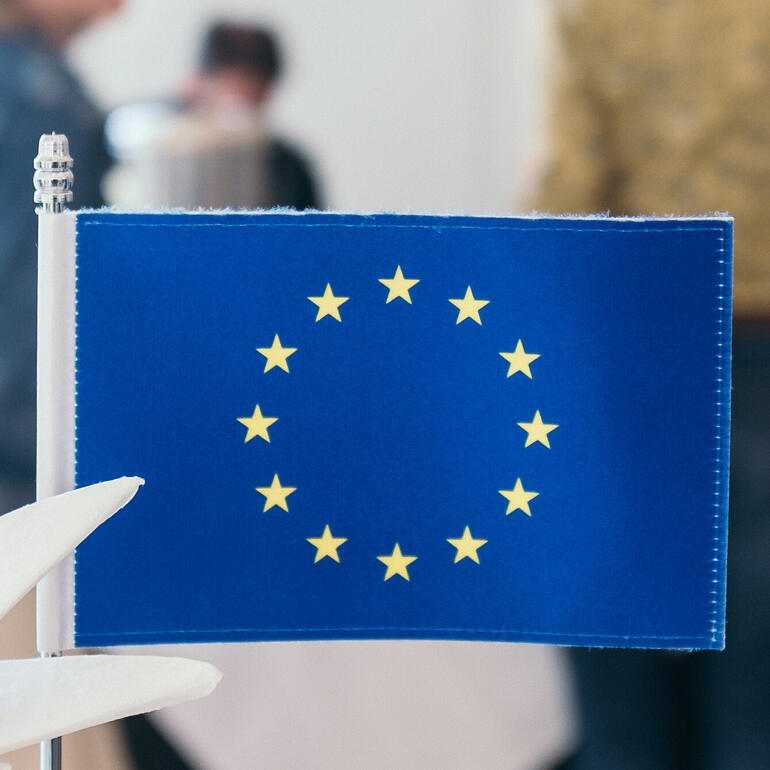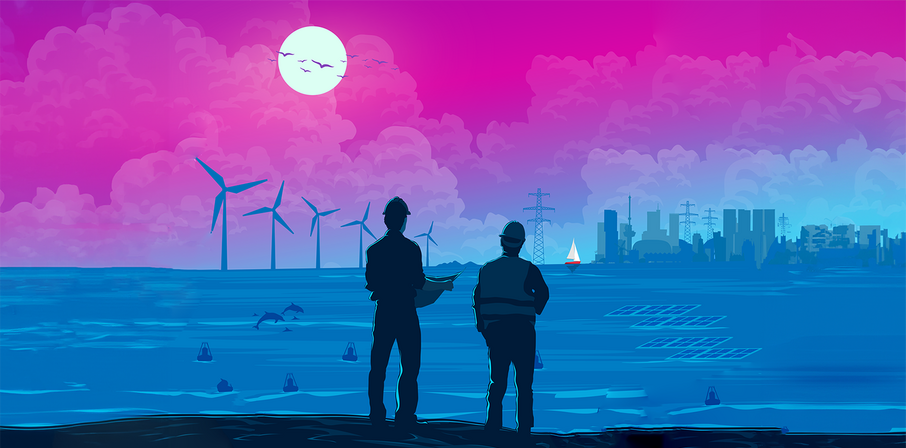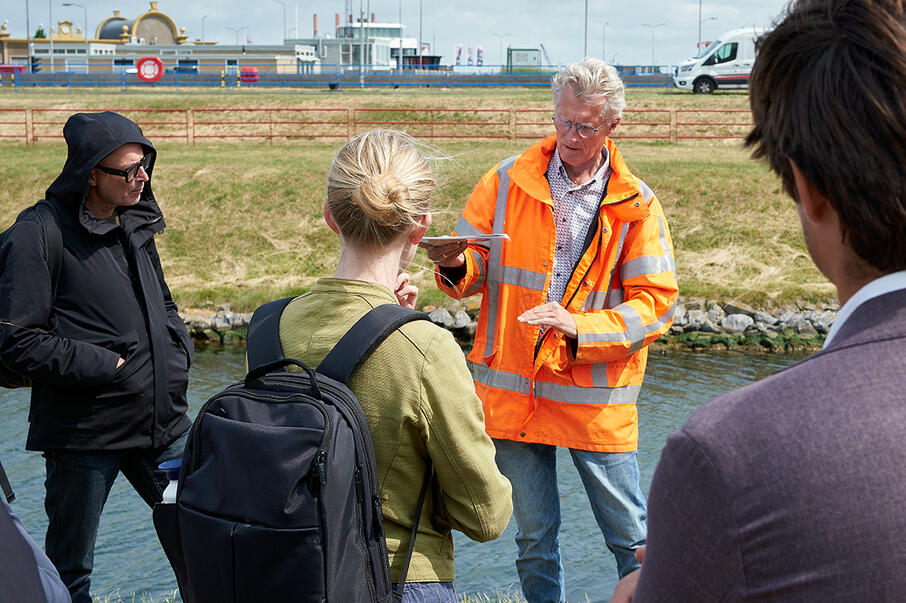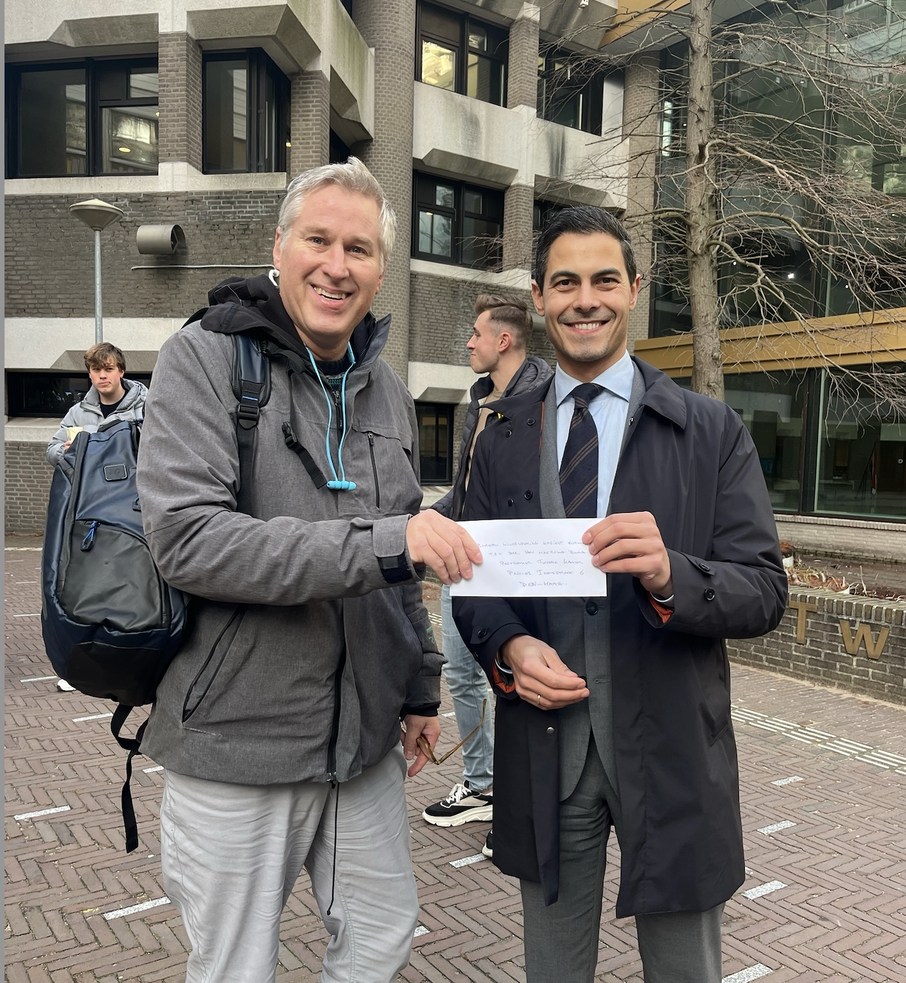Offshore For Sure at EWTEC'25
The 16th European Wave and Tidal Energy Conference (EWTEC) lit up
Madeira with energy, ideas, and innovation. Bringing together researchers, technology pioneers, and industry leaders in the marine energy industry from around the world.
Offshore For Sure (O4S) | 17/09/2025
Over 5 days, attendees had the opportunity to exchange research ideas, showcase technologies, and discuss the latest advancements in renewable marine energy. The event also highlighted the significant progress being made in the sector and showed the importance of continued innovation in achieving global energy transition goals.
At this year’s European Wave and Tidal Energy Conference (EWTEC), partners from our project took to the stage to share their research. Read below the highlights from their presentations.
Risk reduction by Bilfinger
Nina Fozein Kwanke presented the paper [980] Practical application of technical qualification of innovative wave and tidal design, co-authored with Ludolf Pijpker of Bilfinger, based on work that was commissioned by World Class Maintenance within the Offshore For Sure project.
Using the IEC Technical Specification 62600-4, the team applied the Technology Qualification process to the five technologies in our project:
🌊 Dutch Wave Power’s wave energy converter
🌓 Water2Energy’s vertical axis tidal turbine
🌓 Tocardo BV horizontal axis tidal turbine
☀️ Oceans of Energy offshore solar
🔋 FLASC B.V. offshore energy storage
This rigorous approach — combining FMECA risk assessments, RAM analyses, and Digital Twin plans — shows how international standards can be practically applied to accelerate TRL growth, improve reliability, and build investor confidence in offshore renewables. And the best part? These methods are not just theoretical. They already help our innovators identify design improvements and move faster towards deployment.
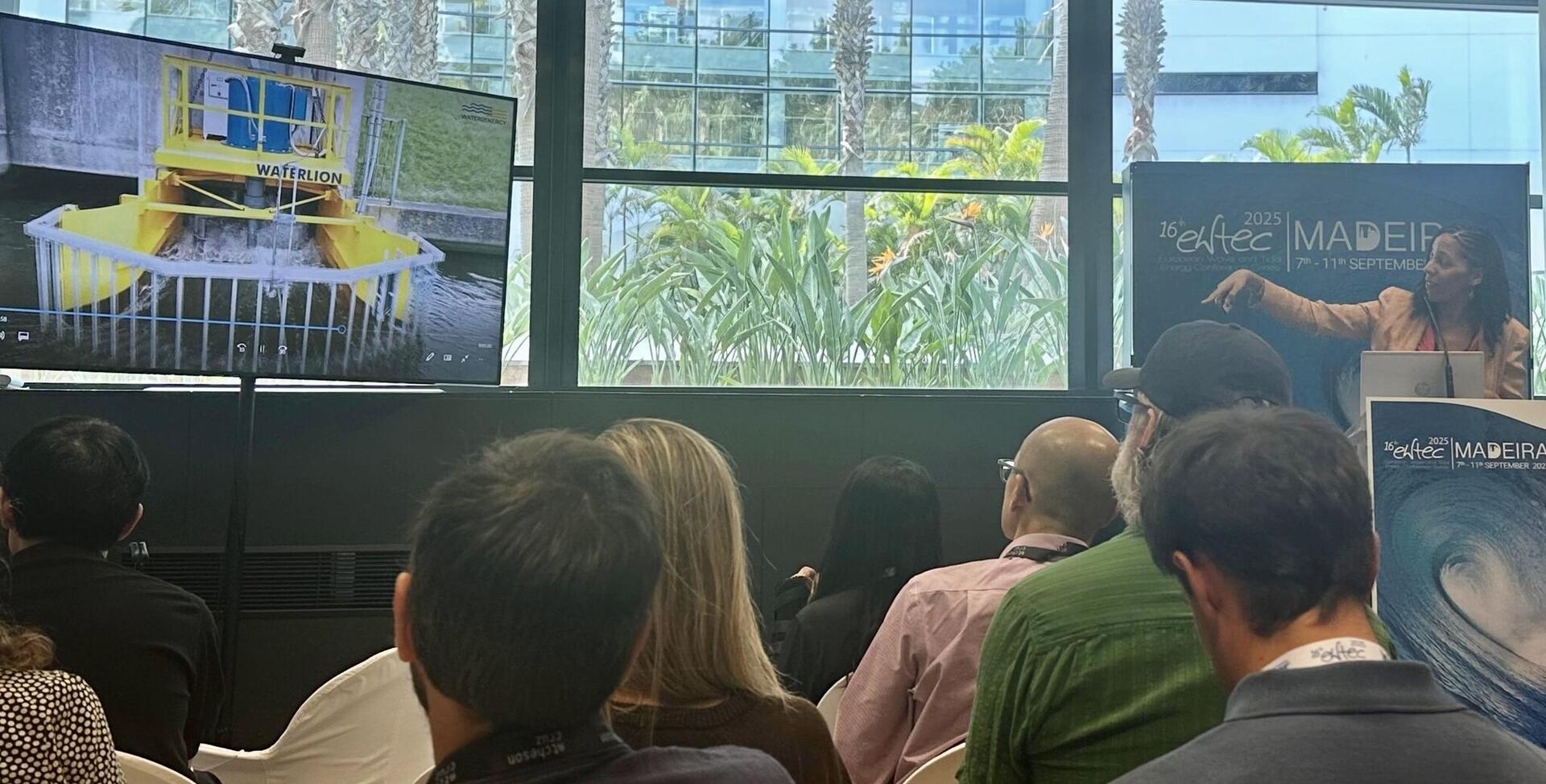
Additionally, University of Ghent, in collaboration with Dutch Wave Power, Tocardo, and IMDC presented their research. The work showcased not only the consortium’s combined expertise but also its strong commitment to advancing offshore renewable energy in the North Sea region.
A list of all papers presented by O4S partners with their titles and co-authors:
|
Material investigations for Dutch Wave Power’s PTO
Adam Kalacska from Ghent University presented joint research with Sten and Hans from Dutch Wave Power, focusing on the Power Take-Off (PTO) system of Dutch Wave Power’s wave energy converter.
The study examined the durability and performance of materials under offshore conditions, providing crucial insights to ensure that the technology is both robust and reliable. By understanding how materials behave under mechanical stress, fatigue, and corrosive environments, the research supports long-term operational reliability, a critical step toward commercial-scale wave energy deployment.
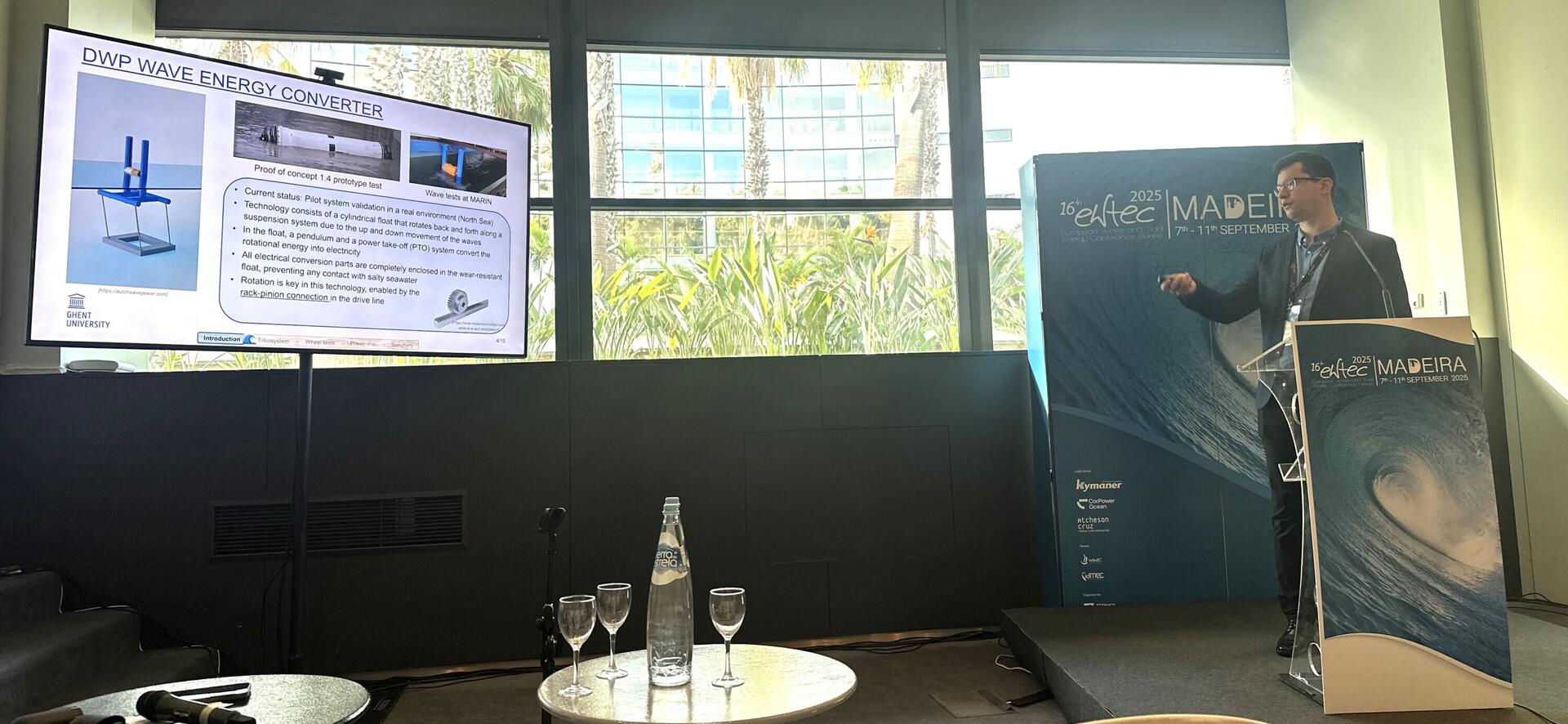
Digital Twins and power performance optimization for Tocardo tidal turbines
Frederick Gibbs presented research developed with Markus Mueller, Mohammed Abusara, Selda Oterkus and Jeremy Smith, from Tocardo, addressing a key challenge for fixed-pitch tidal turbines: maximizing energy capture while keeping production costs low.
By developing a new turbine optimization tool and incorporating Digital Twin simulations, the study enables:
- Improved turbine efficiency and adaptability
- Data-driven insights for design adjustments and operational tuning
- Reduction of overall lifecycle costs
These advances are especially relevant for tidal energy, where cost-effective solutions are essential for wider adoption. This research explored the hydro-elastic behavior of mid-flexibility tidal turbine blades, providing key insights into how flexible blade designs can:
- Absorb dynamic loads more effectively
- Reduce structural fatigue
- Improve overall energy capture in tidal flows
By combining advanced simulation tools with practical design considerations, the study helps Tocardo refine blade designs that are both efficient and resilient, enabling longer lifetimes and better performance in real-world conditions.
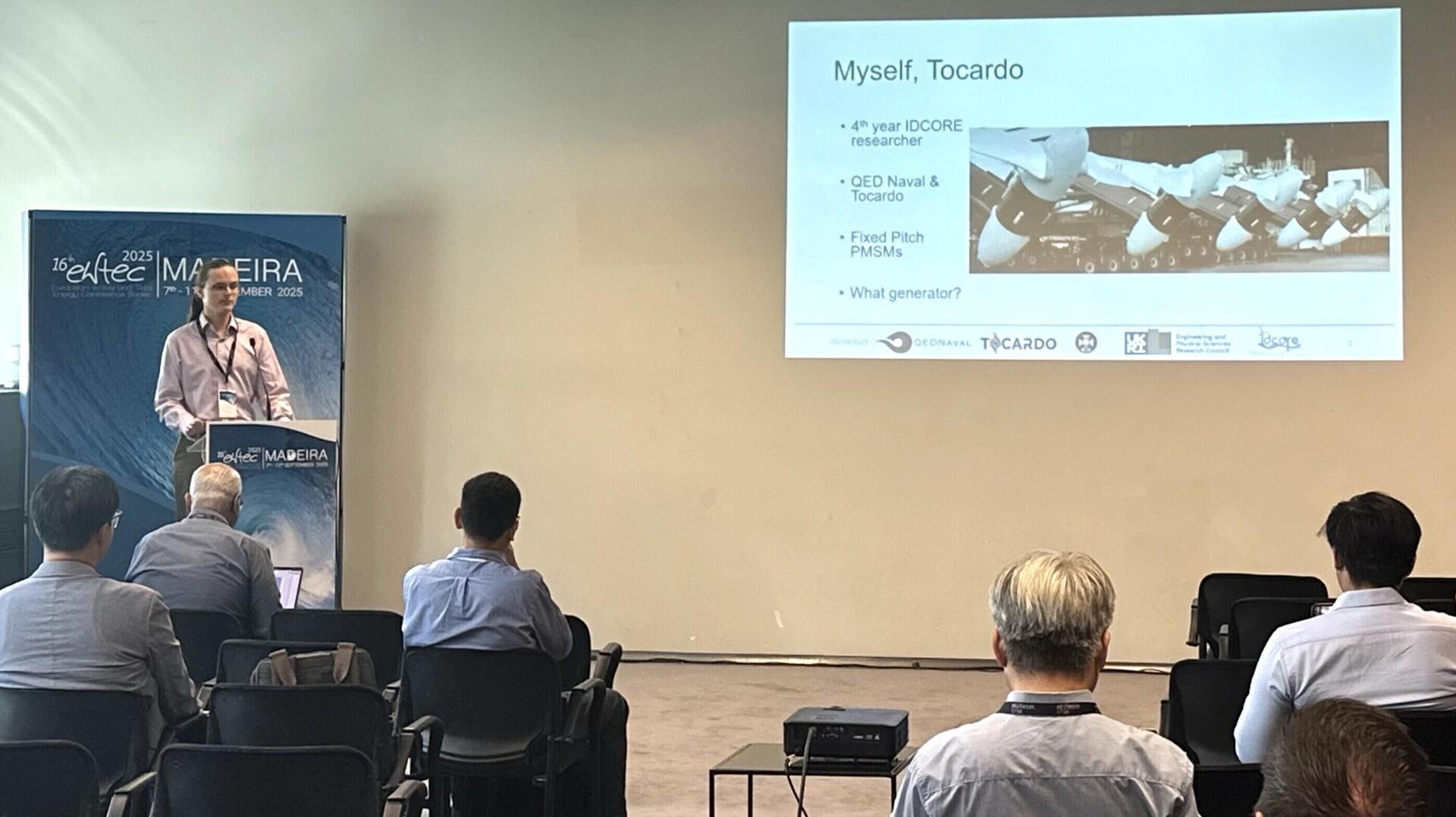
IMDC investigates into combined wind and tidal energy
Mahdi Alemi from IMDC presented findings on how offshore wind and tidal energy installations can coexist within shared marine spaces. This research co-authored with kai chu and Ozlem Ceyhan focused on the interactions between wind turbine foundations and tidal flows, providing actionable insights for:
- Optimizing multi-use offshore sites
- Minimizing environmental impacts
- Enhancing overall energy yield per area
This work highlights a critical aspect of the North Sea energy transition: maximizing space and resource efficiency while integrating multiple renewable technologies.
Driving collaboration and innovation through Offshore For Sure
Collectively, these presentations underscored the pioneering role of the Offshore For Sure project in driving cross-disciplinary collaboration in offshore renewables. From technical qualification and material durability to digital twins and multi-use site optimization, the research showcased at EWTEC 2025 illustrates how innovation, standardization, and practical application go hand-in-hand to accelerate Europe’s transition to sustainable energy.
The Offshore For Sure consortium’s work exemplifies a holistic approach—bringing together academic research, industry expertise, and practical deployment experience—to turn offshore renewable energy concepts into operational realities.



